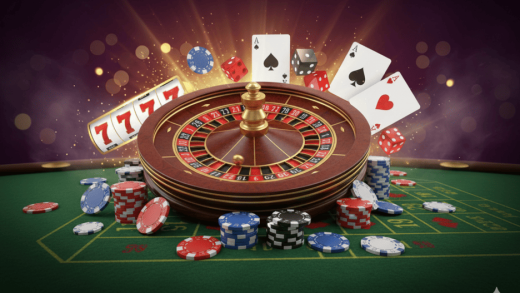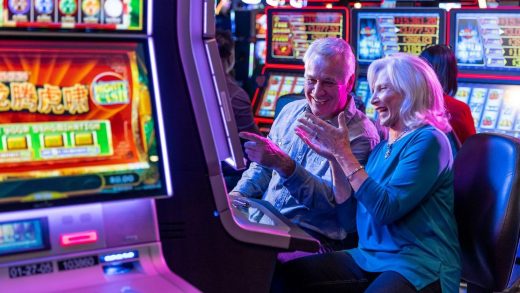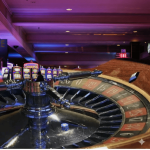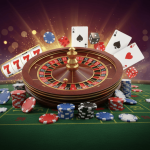Gambling and Body Drama: Insomnia, Constant Thirst, Jaw Clenching – and All Without Winning

When players log into an online casino like https://stake-casino-greece.gr/, they’re usually expecting excitement, entertainment, or financial rewards. However, for many gamblers, the experience often leads to a surprising side-effect: physical stress symptoms such as insomnia, persistent thirst, and jaw clenching – even when they’re not winning. This phenomenon, known as “body drama,” highlights how deeply gambling can affect not just the mind but also the physical body.
In this extensive exploration, we’ll uncover why gambling – even without financial success – triggers these intense bodily reactions. We’ll dive into psychological, emotional, neurological, and physiological explanations, shedding light on why your body experiences such powerful reactions during gambling sessions at casino.
Understanding Gambling-Related Body Drama
What Is Body Drama in Gambling?
“Body drama” describes the range of physical symptoms triggered by emotional stress, excitement, anxiety, and anticipation during gambling sessions. Symptoms often include insomnia, increased thirst, jaw clenching, muscle tension, sweating, and accelerated heart rate.
Why Gambling Causes Physical Reactions
Although gambling might seem purely mental or emotional, the body naturally responds to psychological states. Stressful emotional states – anticipation, excitement, frustration, anxiety – directly trigger physical reactions, producing noticeable bodily symptoms even when financial outcomes aren’t positive.
Psychological Foundations of Gambling-Induced Physical Symptoms
Stress and Anxiety in Gambling
Gambling inherently involves stress and anxiety due to uncertain outcomes, risk, and anticipation. Players experience heightened emotional states, which translate directly into physical symptoms – insomnia, thirst, muscle tension – creating noticeable “body drama” responses.
Emotional Frustration Without Winning
Continuous losses or prolonged gambling sessions without winning significantly elevate emotional frustration. Increased emotional frustration directly triggers physiological stress responses, manifesting as insomnia, dehydration symptoms, or jaw clenching.
Emotional Dynamics Behind Gambling’s Physical Side Effects
Emotional Anticipation and Physical Response
Players at casino frequently experience intense emotional anticipation – hoping for wins, fearing losses – which directly triggers physiological responses like increased adrenaline, rapid heartbeat, sweating, or muscle tension, causing physical symptoms without winning.
Emotional Suppression and Physical Expression
Gamblers frequently suppress negative emotions – frustration, anxiety, disappointment – during losing streaks. Suppressed emotions inevitably manifest physically, causing insomnia, jaw clenching, thirst, or muscle tension as the body subconsciously expresses emotional stress.
Neurological Reasons Behind Gambling’s Physical Effects
Adrenaline and Cortisol Release
Neurologically, gambling significantly elevates adrenaline and cortisol levels, hormones closely associated with stress and emotional intensity. Elevated adrenaline and cortisol trigger physiological responses – insomnia, thirst, muscle tension, jaw clenching – even without gambling success.
Neural Pathways and Physical Symptoms
Repeated gambling sessions strengthen neural pathways associated with emotional stress and anticipation. Over time, these neurological pathways trigger automatic physiological stress responses, intensifying physical symptoms despite financial outcomes.
Physiology of Gambling-Induced Insomnia
Why Gambling Causes Sleeplessness
Insomnia frequently occurs due to prolonged adrenaline release, emotional anticipation, frustration, or anxiety during gambling sessions. Elevated adrenaline levels disrupt normal sleep cycles, causing difficulty falling asleep, frequent awakenings, or restless sleep.
Neurological Hyperactivity and Insomnia
Gambling activities neurologically stimulate the brain significantly. Continuous neurological stimulation, anticipation, emotional stress disrupt normal sleep patterns, causing prolonged neurological hyperactivity responsible for gambling-induced insomnia.
Gambling and Persistent Thirst
Dehydration from Stress Response
Persistent thirst arises directly from physiological stress responses – elevated adrenaline, increased heart rate, sweating – during gambling sessions. Stressful gambling experiences create dehydration symptoms, manifesting as continuous thirst, even without significant physical exertion.
Overlooked Hydration During Gambling
Gamblers frequently overlook hydration during intense gambling sessions. Emotional immersion, anxiety, excitement, or frustration distract players from basic hydration needs, causing noticeable dehydration and persistent thirst post-gambling.
Jaw Clenching and Gambling Anxiety
Emotional Tension and Jaw Muscle Activity
Jaw clenching directly relates to emotional stress, tension, anxiety experienced during gambling. Increased emotional tension unconsciously activates jaw muscles, causing sustained jaw clenching, soreness, or teeth grinding during or after gambling sessions.
Neurological Reasons for Jaw Clenching
Neurologically, stress and anxiety experienced during gambling sessions unconsciously trigger jaw muscle activation. Repeated neurological stress signals cause persistent jaw clenching, becoming an automatic neurological response during gambling-related emotional stress.
Social and Environmental Influences on Gambling Body Drama
Casino Environment and Physical Responses
Online casinos intentionally create stimulating environments – vivid visuals, exciting sounds, rapid gameplay – significantly elevating emotional and neurological stress, intensifying physical symptoms experienced during gambling sessions.
Social Gambling Pressures and Physical Stress
Social interactions within gambling communities significantly elevate emotional pressures. Observing peers winning, losing, or experiencing gambling stress socially reinforces personal emotional anxiety, intensifying physiological stress responses and physical symptoms.
Identifying Physical Gambling Symptoms
Recognizing Frequent Gambling Insomnia
Frequent insomnia directly associated with gambling indicates significant gambling-related emotional stress. Players experiencing consistent gambling-related sleeplessness clearly indicate physiological gambling stress responses requiring proactive emotional management.
Persistent Thirst or Jaw Tension After Gambling
Continuous thirst or jaw clenching symptoms consistently following gambling sessions signify severe physiological gambling stress responses. Persistent physical symptoms directly linked to gambling activities highlight strong emotional and neurological gambling stress requiring proactive intervention.
Risks Associated with Gambling Body Drama
Emotional and Physical Health Risks
Severe gambling-related physical symptoms – prolonged insomnia, persistent dehydration, chronic muscle tension – risk significant emotional and physical health impacts. Emotional stress, anxiety, physical discomfort frequently contribute to emotional exhaustion, physical fatigue, or health deterioration.
Financial Risks from Physical Gambling Stress
Prolonged gambling sessions driven by physiological stress responses significantly increase financial risks. Physiological stress – insomnia-induced emotional impulsivity, stress-driven gambling behaviors – frequently result in poor financial decisions, increased gambling risks, financial irresponsibility.
Strategies to Manage Gambling Body Drama
Balancing Emotional and Physical Health
Consciously balancing emotional gambling experiences with physical health significantly reduces gambling-related physical symptoms. Practicing emotional self-awareness, managing gambling session durations, prioritizing hydration, proactively addressing physical symptoms enhance gambling enjoyment responsibly.
Establishing Responsible Gambling Boundaries
Actively establishing responsible gambling boundaries – session durations, financial limits, emotional triggers – significantly reduces physiological gambling stress. Utilizing responsible gambling tools provided by casino ensures emotional control, physical health, gambling enjoyment.
Mindfulness and Physical Stress Management Techniques
Practicing Mindful Gambling
Practicing mindful gambling significantly reduces emotional and physiological gambling stress. Conscious emotional self-awareness, mindful session management, proactive emotional and physical stress interventions reduce gambling-related physical symptoms responsibly.
Physical Relaxation Techniques
Physical relaxation techniques – deep breathing, progressive muscle relaxation, mindfulness meditation – effectively address gambling-induced physical stress. Regular physical relaxation practices significantly reduce insomnia, muscle tension, jaw clenching, ensuring emotional and physical wellness during gambling sessions.
How Casino Supports Responsible Gambling Behaviors
Comprehensive Emotional and Physical Wellness Resources
Casino Greece actively promotes responsible gambling behaviors, providing extensive resources addressing emotional and physiological gambling stress, responsible gambling education, emotional wellness strategies, and comprehensive gambling support tools.
Robust Emotional and Financial Management Tools
Providing responsible gambling tools – deposit limits, session reminders, loss thresholds – casino actively supports emotional balance, physiological wellness, responsible gambling behaviors, significantly reducing gambling-related physical stress symptoms.
Conclusion: Responsible Gambling for Emotional and Physical Health
Understanding gambling-related physiological responses significantly empowers players to manage emotional stress, physical symptoms, and gambling behaviors responsibly. Recognizing physical gambling risks proactively enables emotional self-awareness, responsible gambling behaviors, and comprehensive emotional and physical wellness.
Platforms actively support responsible gambling behaviors, emotional wellness, physiological stress management, emotional gambling awareness, and comprehensive gambling education. Players proactively engaging in emotional reflection, mindful gambling, responsible gambling boundaries, physical stress management significantly enhance gambling enjoyment, emotional satisfaction, physical health, and life quality.







